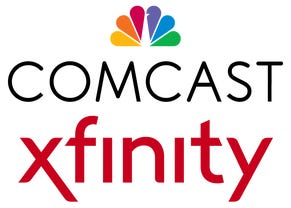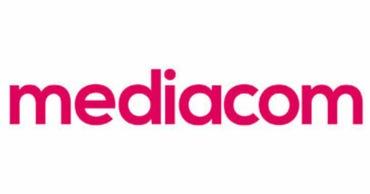![]()
Danika Miller
| August 10, 2021 — 05:00 GMT (06:00 BST)
| Topic: Networking
Charter Spectrum
Best for no data caps

View now at Charter Spectrum
Jump to details
Xfinity by Comcast
Best for fastest speeds

View now at Xfinity
Jump to details
Mediacom
Best for package customization

View now at Mediacom
Jump to details
Cox Communications Internet
Best for gamers

View now at Cox Communications Internet
Jump to details
Consumers are spoiled for choices in many areas, including when trying to choose the best cable internet provider. However, because cable internet is more popular than satellite internet, customers also enjoy lower starting prices. Furthermore, cable internet is easily accessible, meaning faster download speeds and higher data caps.
To narrow down the best cable and internet, we considered criteria such as customer service, fastest speeds, data caps and pricing, although in most cases, prices will be based on where you live and current deals.
|
Charter Spectrum |
Comcast Xfinity |
Mediacom |
Cox Comm. |
|
|
Best for |
No data caps |
Fastest speeds |
Package customization |
PC gamers |
|
Reviews.com Sore |
3.2/5 |
3.6/5 |
3.4/5 |
3.4/5 |
|
Data cap |
Unlimited |
1.2TB |
200GB – 6TB |
1TB |
|
Download Speeds |
Up to 940Mbps |
Up to 2000Mbps |
Up to 1000Mbps |
Up to 940Mbps |
|
J.D. Power Customer Satisfaction* |
712/1000 |
730/1000 |
670/1000 |
723/1000 |
|
ACSI score |
63/100 |
66/100 |
59/100 |
61/100 |
Information accurate as of March 2021
*J.D. Power’s 2020 Residential Internet Service Provider Satisfaction Study average rating for all regions. Based on a 1000-point scale.
Charter Spectrum
Best for no data caps

Charter Spectrum
Reviews score: 3.2 | Starting price: $49.99/month | Download speed: 940Mbps | ASCI score: 63/ 100 |
Charter Spectrum is our only top pick to offer no data caps. Mediacom comes close to offering a deal as generous with data caps that reach 6000 GB — but internet junkies and workaholics will rejoice in an unlimited supply of uploading, downloading, and streaming.
Pros:
No data caps$500 contract buyoutLow installation and rental costs
Cons:
Average customer serviceLower ASCI ScoreFewer plans than competitors
Plans & pricing:
Spectrum Internet: $49.99/mo.Spectrum Internet Ultra: $69.99/mo.Spectrum Internet Gig: $109.99/mo
Features:
No contracts$25 off the first year$5/month equipment rental
View now at Charter Spectrum
Xfinity by Comcast
Best for fastest speeds

Xfinity
Reviews score: 3.6 | Starting price: $49.99/month | Download speed: 2000Mbps | ASCI score: 66/100 |
Xfinity by Comcast customers can opt for the highest download speeds available — up to 2000Mbps — with its new and innovative Gigabit Pro internet plans. But be prepared to pay a pretty penny for those speeds.
Pros:
Wide range of plansImproving ASCI score and higher customer satisfaction ratingUp to 2000Mbps
Cons:
1.2TB data cap$10 overage penaltyEarly termination fees
Plans & pricing:
Performance Starter: $54.95/mo.Performance Internet: $80.95/mo.Performance Pro: $49.99/mo. — then $95.95Blast! Internet: $69.99/mo. — then $100.95Extreme Pro: $79.99/mo.– then $105.95Gigabit: $89.99/mo. — then $110.95Gigabit Pro: $299.95/mo.
Features:
No terms, 1-year, or 2-year contracts.$10 automatic payment discount available
View now at Xfinity
Mediacom
Best for package customization

Mediacom
Reviews score: 3.4 | Starting price: $19.99/month | Download speed: 1000Mbps | ASCI score: 59/100 |
Bundling your TV and internet service starts at just $49.99 per month in most locations. The base plan comes with 60Mbps and 50+ channels, though Mediacom’s packages allow for easy customization.
Pros:
Higher than average speedLow starting priceHigh data caps 6TB
Cons:
Poor customer service ratingsLower than average ASCI scoreOverage penalties apply
Plans & pricing:
Access Internet 60: $19.99/mo. — then $29.99Internet 60: $39.99/mo. — then $69.99Internet 100: $49.99/mo. — then $79.99Internet 200: $59.99/mo. — then $99.99Internet 500: $69.99/mo. — then $119.99Internet 1 Gig: $79.99/mo. — then $139.99
Features:
90-day satisfaction guaranteeInternet security included$10/month modem fee
View now at Mediacom
Cox Communications Internet
Best for gamers

Cox Communications Internet
Review score: 3.4 | Starting price: $29.99/month | Download speed: 940Mbps | ASCI score: 61/100 |
With Cox Communication’s Elite Gamer connections, PC users can experience faster connections to game servers and less lag during game sessions — an absolute boon for playing your favorite ranked games.
Pros:
No data caps$500 contract buyoutLow installation and rental costs
Cons:
High customer service ratingLower ASCI scoreOnly average download speed
Plans & pricing:
Internet Starter 10: $29.99/mo. — then $44.99Internet Essential 50: $39.99/mo. — then $65.99StraightUp Internet (Prepaid): $50/mo.Internet Preferred 150: $59.99/mo. — then $83.99Internet Ultimate 500: $79.99/mo. — then $99.99Gigablast: $99.99/mo. — then $119.99
Features:
No contracts$12/month Wi-Fi modem rental12-month contracts$6.99/month Gamer Elite connection for faster server-based play
View now at Cox Communications Internet
What Is Cable Internet and How Is it Different?
Cable internet is an internet service that is accessed similarly to your cable television. It’s delivered via coaxial cables, the same ones that allow you to watch cable TV. Because of the way the cables are set up, multiple homes or even an entire neighborhood can use the same cables to access the internet and watch TV. This is a much more affordable and available option than fiber or satellite internet.
Cable internet is widely accessible, can come with cable TV bundles, and offers a range of speeds. However, there is a downside. Unfortunately, because all of these homes would share bandwidth, when various households connect simultaneously, that can result in the network being bottlenecked and slow internet speeds.
How to find the right internet provider for you
Find your local providers
According to the FCC’s Broadband Progress Report, 70% of Americans have fewer than three provider options (and that’s counting all internet types). Satellite internet is available nationwide and is usually one of those options. DSL and cable have pretty varied availability based on state, and fiber-optic internet is the rarest. Your first step should be checking which providers service your home. Our tool above can help you find the providers available in your ZIP code.
Audit your speed needs
When it comes time to purchase your internet plan, you’ll need to know how much speed your household needs. Internet service is sold in speed-based packages, measured in Mbps (megabits per second). Typically, cable internet packages range between 10 Mbps and 100Mbps and accommodate HD video streaming, online gaming, and file downloading. If you only use the internet to check email or social media and you don’t want to pay for excess speed, DSL or satellite internet might be best for you. Keep in mind; these slower speeds usually come at a poorer value.
Determining your needs depends on your usage habits. A couple of things play into usage demands, including the number of connected devices and the type of internet activity. Internet speed works kind of like a traffic highway: The more people using it, the slower you’ll have to go. High-demand usage like video conferencing or real-time gaming requires higher speeds and more monthly data.
How to know how much internet you need
How much internet you need depends on how much you plan to use. Here’s a breakdown of internet usage by Megabits per second (Mbps) and the number of devices connected to the internet.
|
Number of Devices |
Light Use |
Moderate Use |
High Use |
Very High Use |
|
1 – 3 |
5 – 10Mbps |
15Mbps |
25Mbps |
50Mbps |
|
4 – 8 |
15Mbps |
25Mbps |
50Mbps |
100Mbps |
|
8 – 10 |
25Mbps |
50Mbps |
100Mbps |
150Mbps |
|
10+ |
50Mbps |
100Mbps |
150Mbps |
200+ Mbps |
How do you determine your data requirements?
Internet data works similarly to your phone data plans in that you receive a certain allotment of gigabytes (GB) to “spend” over the course of a month based on your online activity. Most cable internet companies implement data caps starting at 250GB. For some context, 1GB is needed for about one hour of Netflix SD streaming and 3GB per hour for HD streaming.
If you’re just using the internet for light emailing and web browsing, you can stay near 50GB per month. Heavy users should look for a plan with around 500GB of data or more. If you happen to go over your data limit, providers will issue a warning and eventually charge a fee for more data.
What’s the difference between fiber and cable internet?
Though fiber-optic internet is run with literal cables, it’s quite different from a traditional cable internet. Fiber transmits the internet through strands of glass rather than copper; as such, it’s completely unaffected by environmental conditions, and it multiplies typical internet speeds.
Fiber providers are few and far between, with minimal availability. Traditional cable providers like Comcast are beginning to introduce fiber service, but it has a long way to go before reaching the same nationwide availability as other internet types.
What is the difference between a modem and router?
Simply put: The modem acts as a bridge between your home and your internet service provider by establishing a connection to the internet. The router serves to connect the internet/WiFi to your devices by broadcasting a WiFi connection throughout your home.
Some modems and routers have merged into one device — a good way to free up space and reduce clutter.
Methodology
We evaluated internet service providers based on customer satisfaction, data caps, download speed, plans, and customer support to determine Reviews.com scores and create our best internet service provider reviews.
To compare internet service providers with other brands across the board, we calculate each Reviews.com score based on the following:
Customer Satisfaction: Reviews.com used J.D. Power’s 2020 Residential Internet Service Provider Satisfaction Study to calculate an average rating of internet providers across all applicable regions.Top Download Speeds: We awarded higher scores to internet providers with higher download speeds.Number of Plans: Internet providers with more plan options to choose from scored higher in our methodology.Data Caps: No one wants to be left without internet for the rest of the month, so we awarded internet providers with higher scores if they had high or no data caps. Customer Support: We reviewed and compared the number of channels that customers could reach each provider’s customer support representatives. The more channels of contact available, the higher the score.
Related Topics:
Reviews
Cloud
Internet of Things
Security
Data Centers
![]()
Danika Miller
| August 10, 2021 — 05:00 GMT (06:00 BST)
| Topic: Networking